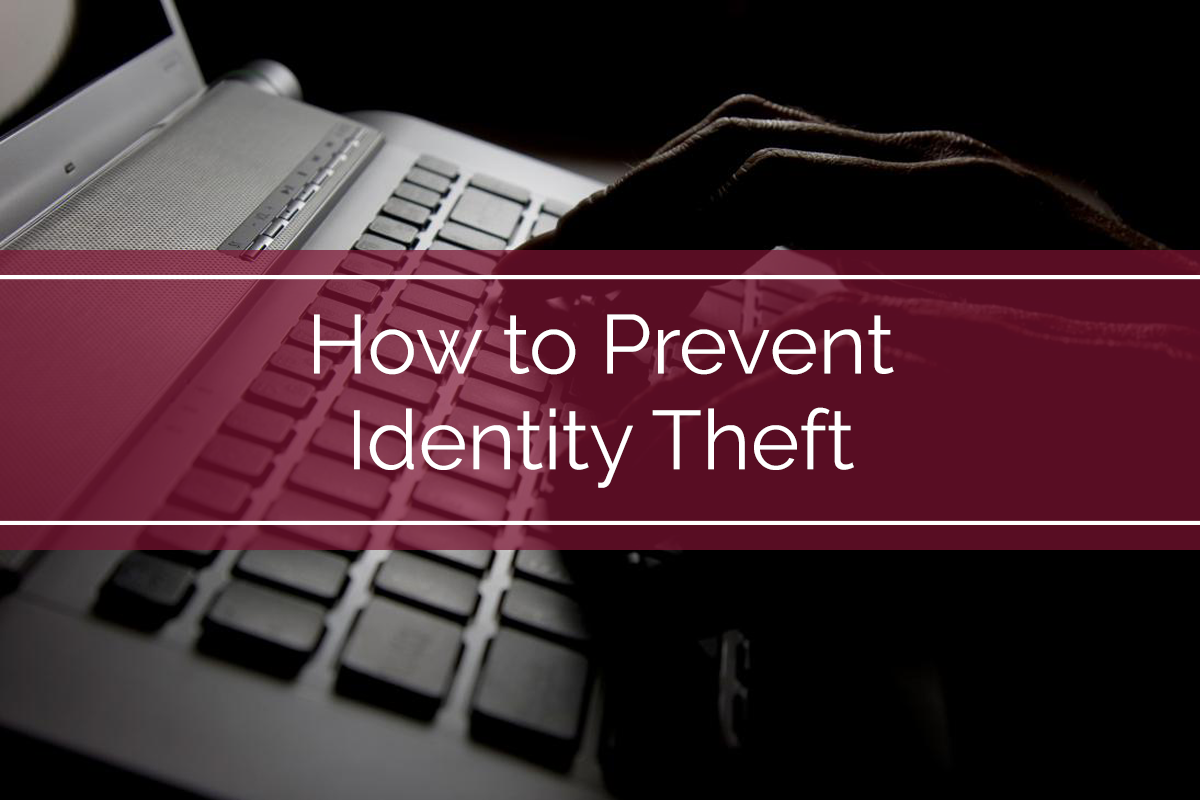
19 Jul How to Prevent Identity Theft
Identity theft, unfortunately, is rapidly becoming an increasingly common occurrence. Between online shopping and progressing technology, it has never been easier for hackers to access their victims information. While you may not ever be able to absolutely prevent identity theft, there are steps that everyone can take to drastically decrease its likelihood.
1. Wallet Backup
One of the most important things you can do is make a “backup copy” of your wallet, especially if you are going to be traveling. Make photocopies of your license and cards, and write down card numbers and the amount of cash in your wallet, along with anything else important that might have been in there. In the case that your wallet is stolen, you will have access to all the information you will need to take care of the situation. However, make sure that this backup copy is a physical, tangible one; mobile wallet backup apps present their own security problems.
2. Keep Information Close
While it might sound like a no-brainer, keep personal information to yourself as much as possible. This applies to both your online life, and your life outside of the internet. Online, do your best to pay with credit cards so that you are able to dispute and freeze charges immediately, which isn’t always possible with debit cards. Avoid filling out your information on online forms and giving out your social security number whenever possible. The same applies to the rest of your life, too; it’s generally a good idea to keep as much personal information as you can to yourself.
3. Document Security
Similarly, keep your documents secure and away from prying eyes. Store documents off your computer and either on a hard-drive or a USB drive. Avoid using the cloud to store any important information, as this is one of the most easily breached forms of storage, and delete any files that you absolutely do not need. Invest in a paper shredder to properly dispose of any important documents, and as soon as anything with your information becomes obsolete, shred it!
4. Avoid Public WiFi
If you can, avoid connecting to public wifi networks, especially while traveling. These networks are not encrypted, which means that everyone around you is able to see whichever websites you are visiting, giving them access to your information. Plus, some scammers will set up “malicious” hotspots, which are just set up to lure would-be victims into connecting.
Even just by taking these simple steps, the chances of you experiencing identity theft decrease hugely. The best way to prevent crime is simply to remain vigilant. Check your transactions frequently, read your statements carefully, and always report a charge that you don’t remember making; after all, it’s better to be safe than sorry.





No Comments